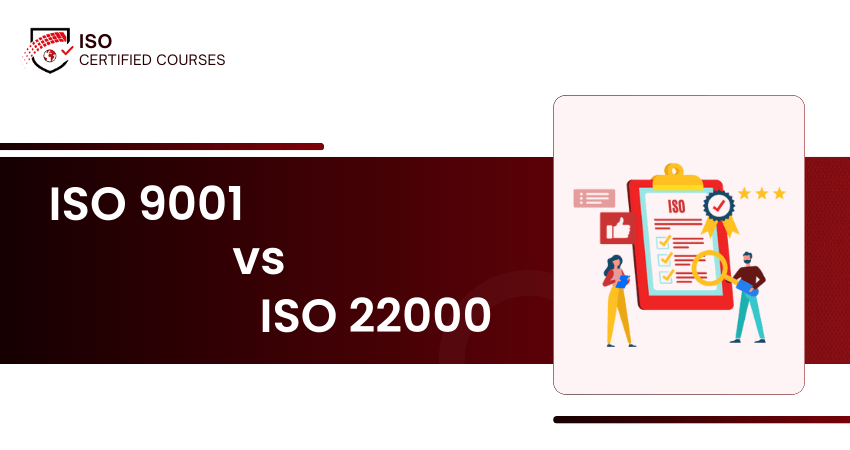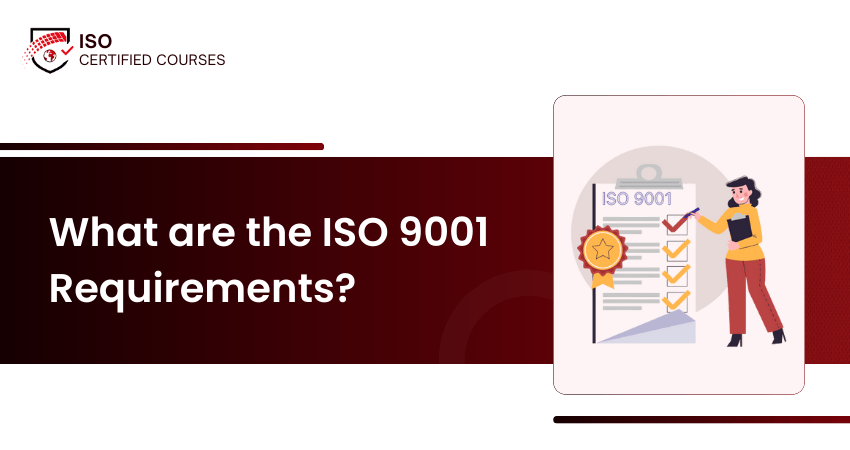ISO 17020 Internal Auditor Training Overview
The ISO 17020 Internal Auditor Course offers in-depth training on how to conduct effective internal audits within inspection bodies. It focuses on the operational and impartiality requirements of ISO 17020 and the auditing techniques needed to evaluate conformance. Designed for professionals who want to strengthen inspection quality and maintain accreditation readiness, the course ensures practical audit capability aligned with ISO 19011 guidelines.
Key Topics Covered
ISO 17020 Requirements: Understanding key clauses for inspection body operations
Internal Audit Techniques: Audit planning, checklists, evidence gathering, and reporting
Types A, B, and C Bodies: How audit approaches vary across inspection body categories
Audit Findings and Nonconformities: Identifying, documenting, and following up on issues
Continual Improvement: Using audits to drive compliance and performance gains
Course Benefits
Develop audit readiness: Support your organisation in meeting ISO 17020 requirements
Enhance inspection quality: Help identify issues early and promote consistency
Improve internal controls: Strengthen impartiality and technical performance
Career progression: Build key auditing skills for roles in inspection and quality assurance
This course is suitable for individuals involved in quality assurance or audit responsibilities within inspection bodies. Ideal participants include:
Inspectors and Technical Staff
Quality and Compliance Officers
Internal Auditors
Inspection Managers
Operational Risk Professionals
ISO Coordinators

ISO 17020 Internal Auditor Training Outline
Module 1: Introduction to ISO 17020
- Scope
- Normative References
- Terms and Definitions
Module 2: Inspection Bodies
- What is Inspection?
- Introduction to Inspection Bodies
- Goals and Requirements of Inspection Bodies
- Inspection According to ISO
- Important Functions of Inspection
- Types of Inspection Bodies
- Inspection Body Accreditation
Module 3: Inspection Procedure
- Select and Prepare
- Conduct Intelligence Led Inspection
- Report, Record, Follow Up, Close Out, and Evaluate
Module 4: Quality Management and Improvement Overview
- What is Quality Management?
- Introduction to Quality Improvement
- Basics of Quality Improvement
- Quality Improvement Process
- Methods of Quality Improvement Management
- Benefits of Improving Quality
Module 5: General Requirements
- Impartiality and Independence
- Confidentiality
Module 6: Structural Requirements
- Administrative Requirements
- Organisation and Management
Module 7: Resource Requirements
- Personnel
- Facilities and Equipment
- Subcontracting
Module 8: Plan-Do-Check-Act
- PDCA Cycle
- PDCA Approach
- Planning
- Support
- Operation
- Performance Analysis
- Improvement
Module 9: Planning Individual Internal Audits
- Internal Audit Approach
- Risk Assurance Mapping
- Audit Plan
- Research the Audit Area
- Conduct Process Walk-Throughs
- Map Risks to the Organisation, Process, or Function
- Obtain Data Prior to Fieldwork
Module 10: Audit Procedure
- Considerations During the Auditing Process
- Auditing Methods
- Requirements for Auditors
- Conformity Assessment Audit Procedure
- Conducting the Audit
Module 11: Auditing Roles and Principles
- Auditing Roles
- Audit Team
- Maintaining Confidentiality
- Independence
- Evidence-Based Approach
- Integrity
- Fair Presentation of Audit Reports
Module 12: Skills and Competencies of an Internal Auditor
- Personal Attributes
- Skills
- Education and Experience
- Knowledge
Module 13: Responsibilities of the Auditor
- Management of Personnel
- Preparing Checklist
- Scope of Work
- Managing an Audit Programme
- Communication at All Levels of Organisation
Module 14: Conducting the Internal Audit and Handling the Interview Process
- Decide What You Want to Achieve
- Identify Risks
- Plan and Audit Activities
- Validate the Facts and Complete the Work
- Develop a Deliverable or Report That will Drive Action
- Follow Up
Module 15: Audit Programme
- Reviewing and Improving Audit Programme
Module 16: Closing an ISO 17020 Audit
- Prepare Audit Report
- Distribute Audit Report
- Conduct Audit Follow-Up
Module 17: Managing an ISO 17020 Audit Programme
- Know What and When to Audit
- Create an Audit Schedule
- Pre-Planning the Scheduled Audit
- Conducting the Audit
- Record the Findings
- Report Findings

What You’ll Learn in this Course
By the end of the course, you will be able to:
- Understand ISO 17020 requirements relevant to internal audits
- Plan and conduct internal audits for inspection activities
- Identify nonconformities and suggest corrective actions
- Prepare clear, objective audit reports
- Contribute to ongoing improvement of the inspection body’s management system

What’s Included
ISO 17020 Internal Auditor Examination
Training led by certified experts in inspection body auditing
ISO 17020 Internal Auditor Certificate
Digital Learning Resources
ISO 17020 Internal Auditor Training Exam Details
To achieve the ISO 17020 Internal Auditor Certification, candidates will need to sit for an examination. The exam format is as follows:
Question Type: Multiple Choice
Total Questions: 30
Total Marks: 30 Marks
Pass Mark: 50%, or 15/30 Marks
Duration: 40 Minutes

Individual Training
Boost your expertise with our Individual Training, tailored for professionals seeking ISO knowledge at their own pace. Learn core standards, industry best practices, and implementation skills from certified experts.
Corporate Training
Empower your teams with our Corporate Training solutions, designed to align ISO standards with your organisational goals. Ensure compliance, boost efficiency, and build a culture of continuous improvement across your workforce.
Our Upcoming Sessions
- Online Instructor-Led
- Online Self-Paced
- Classroom
- Onsite
Boost Your Career with ISO Training
Average salary boost for professionals with our ISO Training in compliance and standards roles
85%Learners begin roles in quality assurance, compliance, or audit after completing our ISO Courses
90% Compliance Readiness
Organisations report enhanced operational efficiency and preparedness following our ISO Training for employees
-
Manufacturing and Production
-
Energy and Utilities
-
Construction and Infrastructure
-
Waste Management and Recycling
-
Information Technology and Information Security
-
Public Sector and Environmental Services
Our Immersive Learning Solution
Hands-On Learning Experience
Engage with real-world scenarios, interactive tasks, and simulations that bridge theory and practical application.
Expert-Led Delivery
Learn from seasoned professionals with deep industry experience and insight into ISO standards and beyond.
Flexible Learning Formats
Choose from Online Instructor-Led, Online Self-Paced, or Classroom sessions designed to suit your pace and preferences.
Customised Content
Training aligned with your sector, goals, and challenges, ensuring relevant, targeted learning every time.
Empowering Growth with Tailored Training Solutions
We help organisations equip their teams with the skills and knowledge needed to consistently meet industry standards. Our corporate training is designed around your specific operational goals, ensuring alignment with the ISO framework.
With a strong focus on real-world application and measurable outcomes, each session drives practical capability and lasting improvement. By fostering standard-driven performance across all levels, we empower your workforce to contribute confidently and consistently to organisational success.
- Delivered by industry-certified trainers with hands-on experience
- Custom content aligned to your sector, standards, and strategy
- Flexible formats, including on-site, virtual, or blended, to suit your teams
On-Demand Access
Custom and Scalable Solutions
24x7 Support












Feedback From Our Clients
The ISO 9001 Internal Auditor Training gave me practical insight into quality systems and how to apply audit techniques effectively. The sessions were clear and approachable, even without prior auditing experience. I now feel confident reviewing documentation, identifying nonconformities, and contributing to continuous improvement. The real-world examples and audit scenarios helped me understand the practical side of compliance and how it fits into our daily operations.
Completing the ISO 45001 Foundation Training provided me with a solid understanding of occupational health and safety standards. The training clarified legal requirements, hazard identification, and risk control measures. I’ve applied this knowledge to improve our incident response protocols and reinforce safety culture within the team. It’s also made me more effective at communicating compliance expectations and supporting ongoing H&S initiatives.
The ISO 22301 Foundation Training helped deepen my knowledge of business continuity planning and risk preparedness. The course content was practical and focused on real implementation challenges, which I could immediately relate to my role. I now play a more active part in reviewing continuity plans and coordinating recovery strategies. The training has improved how we manage operational risks and strengthened our overall resilience.
I registered my team in the ISO 9001 Lead Implementer Training, and the improvements were visible right away. The training gave us the tools to standardise workflows, enhance documentation, and build a consistent quality management system. The team has taken ownership of processes and is now more proactive in identifying areas for improvement. It’s significantly enhanced how we align with best practices and deliver results with greater reliability.
Our team participated in the ISO 45001 Lead Auditor Training to reinforce our internal safety and compliance framework. The training not only improved our auditing skills but also helped us critically assess our workplace health and safety practices. We’ve since implemented stronger controls and improved reporting structures. The shift in awareness and engagement has been very positive, especially in high-risk areas.
Frequently Asked Questions
What is the ISO 17020 Internal Auditor Course about?
This course trains professionals to carry out internal audits in line with ISO 17020, helping inspection bodies assess compliance, uphold quality, and prepare for external audits.
Is this course suitable for someone new to auditing?
Yes, although prior exposure to inspection processes is helpful, the course guides learners through each step of the internal audit process in a practical and accessible way.
Does it cover ISO 19011 audit guidelines?
Yes, the course is aligned with ISO 19011, ensuring you gain knowledge of best practices for auditing management systems, tailored specifically to ISO 17020 contexts.
What kinds of organisations use ISO 17020?
It is used by organisations that carry out inspections such as regulatory bodies, technical inspection agencies, third-party inspection services, and compliance assurance teams.
Will I learn how to handle audit nonconformities?
Yes, the course teaches how to identify, report, and follow up on nonconformities effectively, ensuring that audit outcomes support improvement and risk reduction.








































